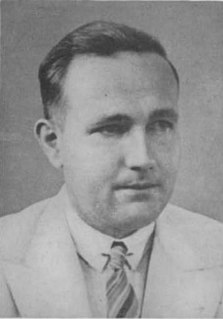A Quote by Daniel J. Boorstin
The most promising words ever written on the maps of human knowledge are terra incognita, unknown territory.
Related Quotes
Can any rational person believe that the Bible is anything but a human document? We now know pretty well where the various books came from, and about when they were written. We know that they were written by human beings who had no knowledge of science, little knowledge of life, and were influenced by the barbarous morality of primitive times, and were grossly ignorant of most things that men know today.
The dictionary is like a time capsule of all of human thinking ever since words began to be written down. And exploring where words have come from can increase your understanding of the words themselves and expand your understanding of how to use the words, and all of this change happens in your thinking when you read the words.
The role I see for my books is trying to think through the consequences of various things because a lot of the issues around technology and the nuances in it are not usually widely appreciated. That's how I view my writing as I sort of explore this terra incognita ahead of us in an effort to try to understand where we might be heading.
When someone doesn't show up, the people who wait sometimes tell stories about what might have happened and come to half believe the desertion, the abduction, the accident. Worry is a way to pretend that you have knowledge or control over what you don't--and it surprises me, even in myself, how much we prefer ugly scenarios to the pure unknown. Perhaps fantasy is what you fill up maps with rather than saying that they too contain the unknown.
Words were one of the most powerful forces known— or unknown— to man. The Most High had created this world with His words. And humans, who had been fashioned in His image, could direct the entire course of their lives with their words, their mouths as the rudder on a ship, as the bridle on a horse. They produced with their words. They destroyed with their words.







































